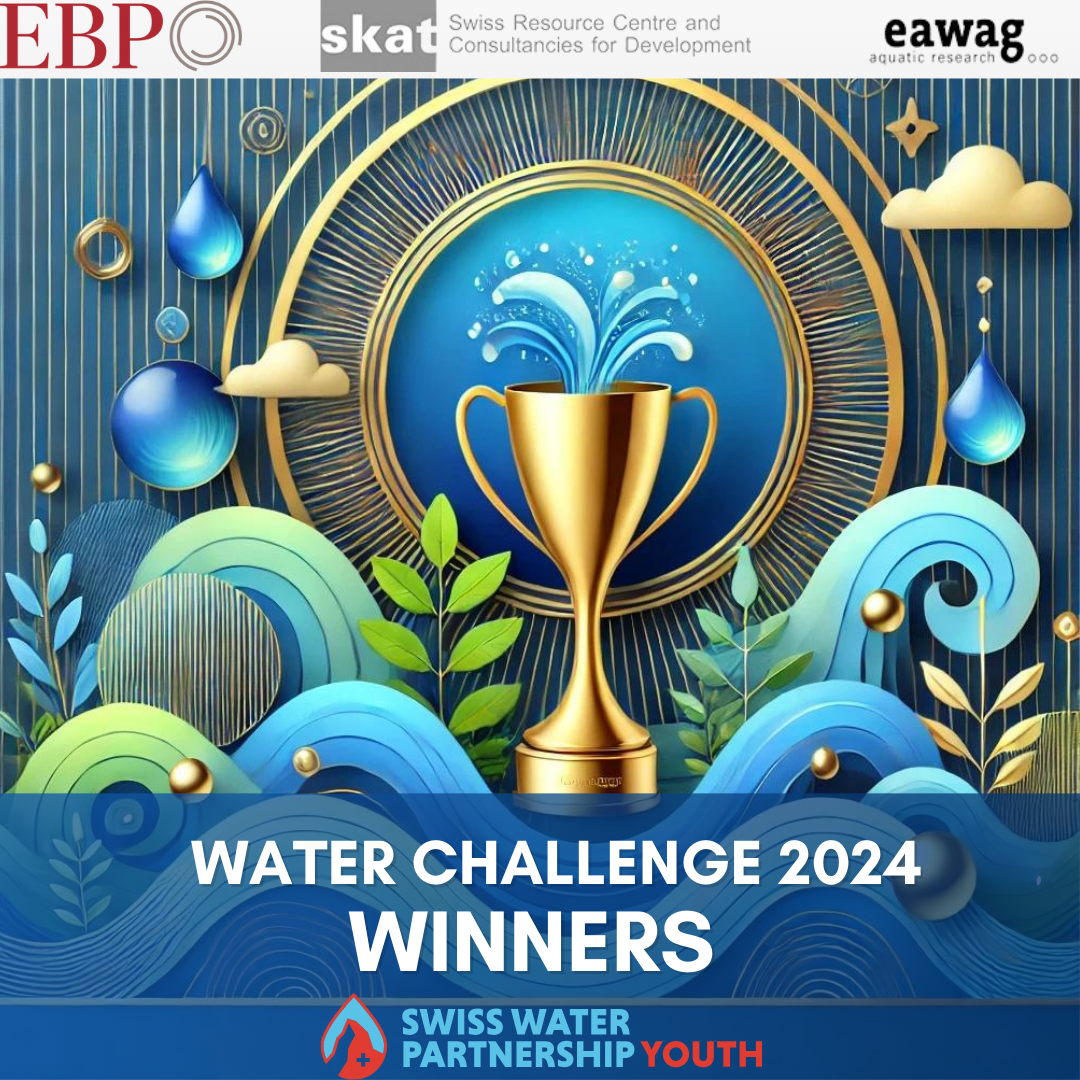
Winning Projects of the 2024 Water Challenge
By SWP Youth
29. October 2024
For the fifth consecutive year the Water Challenge empowers young water talents in realizing their innovative projects aimed at tackling critical water issues.
This year’s challenge highlights four impactful projects selected for their creativity, commitment to sustainable water management, and potential for community transformation.
We extend our gratitude to our sponsors —EBP, Eawag, and Skat Consulting—whose support has been instrumental in making this initiative possible. Aknolwdgements further go to Marisa Boller and the Youth Coordinators Team for planning, organizing and running the entire process, as well as to George Wainaina and Abishek Narayan for their role as external reviewers of the short-listed proposals.
Over nearly six months, the dedicated participants of the 2024 Water Challenge have gathered, brainstormed, and collaborated to bring their ideas to life during 1 Co-creation and 2 Masterclass workshops. Bridging time zones and pooling diverse skills, these young innovators crafted solutions to tackle some of today’s most urgent water-related issues in development. Guided by the SWP Youth Committee, participants received insights on systems thinking and tips for creating impactful project proposals.
From about 80 participants, 22 projects from over 12 countries were ultimately submitted—each one showcasing the commitment and ingenuity of these young minds.
A heartfelt thank you to everyone who submitted a project!
Congratulations to our 2024 Winners! They’ll work alongside SWP experts and receive grants of up to CHF 2000, with support continuing through the end of 2025. We’re thrilled to see their projects take shape and soar in the coming months!
The winners are:
Charcops Wetlands, Ghana
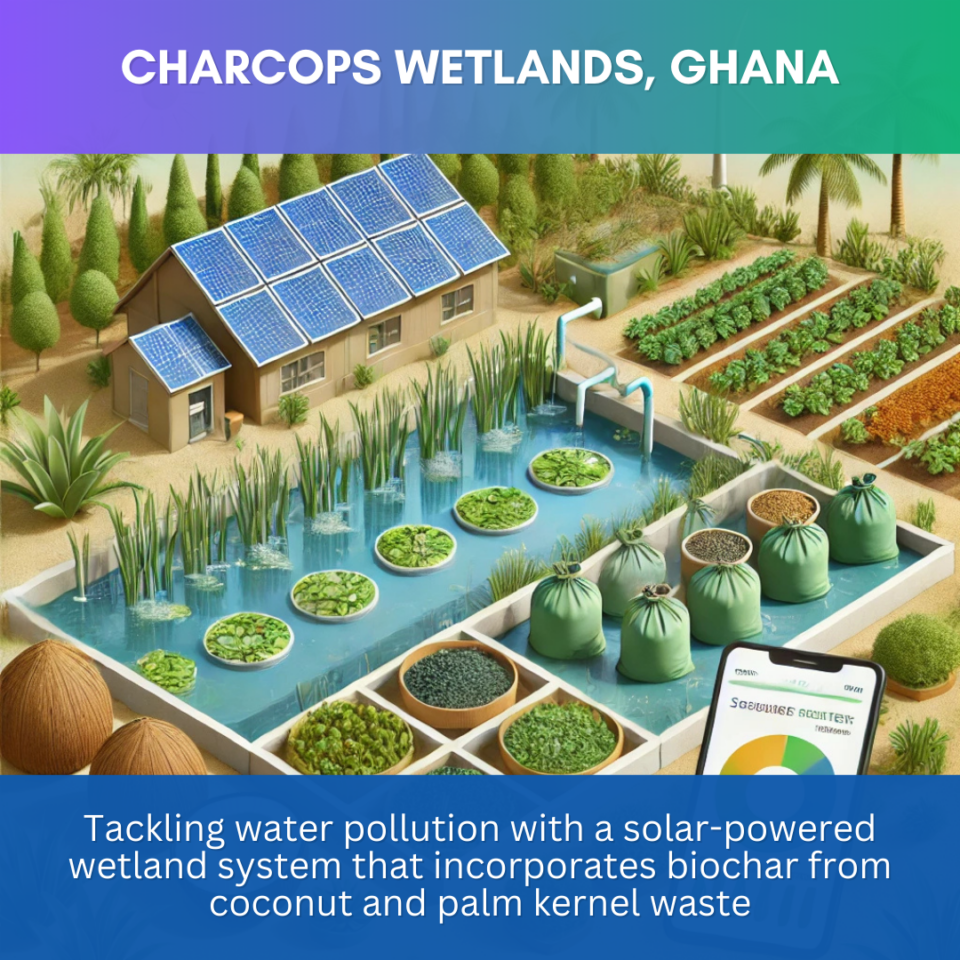
The Charcops Wetlands project in Oforikrom Municipality, Kumasi, Ghana, tackles water pollution with a solar-powered constructed wetland system that incorporates biochar. Derived from coconut and palm kernel waste, this biochar will purify wastewater and polluted streams used for irrigation in local vegetable farms. The technology is expected to reduce microbial populations by up to 99%, significantly lowering health risks for both farmers and consumers.
Team: Theodora Sophia Taylor,Ernest Obeng,Emmanuel Nketiah Ahenkorah
Lake Cleanup Kivu, Democratic Republic of the Congo
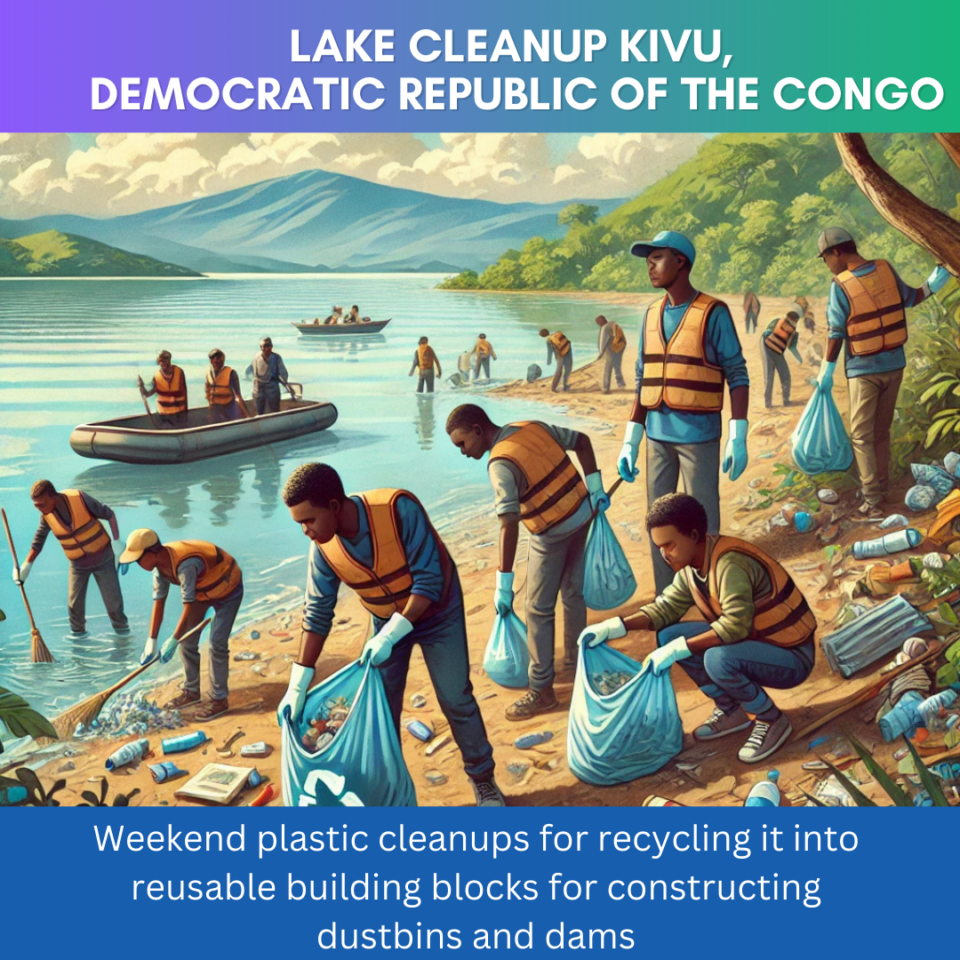
With a focus on restoring Lake Kivu’s natural beauty and ecological balance, this project organizes weekend cleanups to remove plastic waste from the lake’s shores and surface. The collected plastics will be repurposed into reusable building blocks for constructing dustbins and dams, contributing to a cleaner, sustainable environment and reducing plastic pollution in the region.
Team: Zagabe Ekoy Nelson, Fidelie Ntamulumeyene, Serge Bashonga, Yannick Mutambo, Fidelie Ntamulumeyene, Benite Mangominja
Plant Treat Constructed Wetland Project, Rwanda
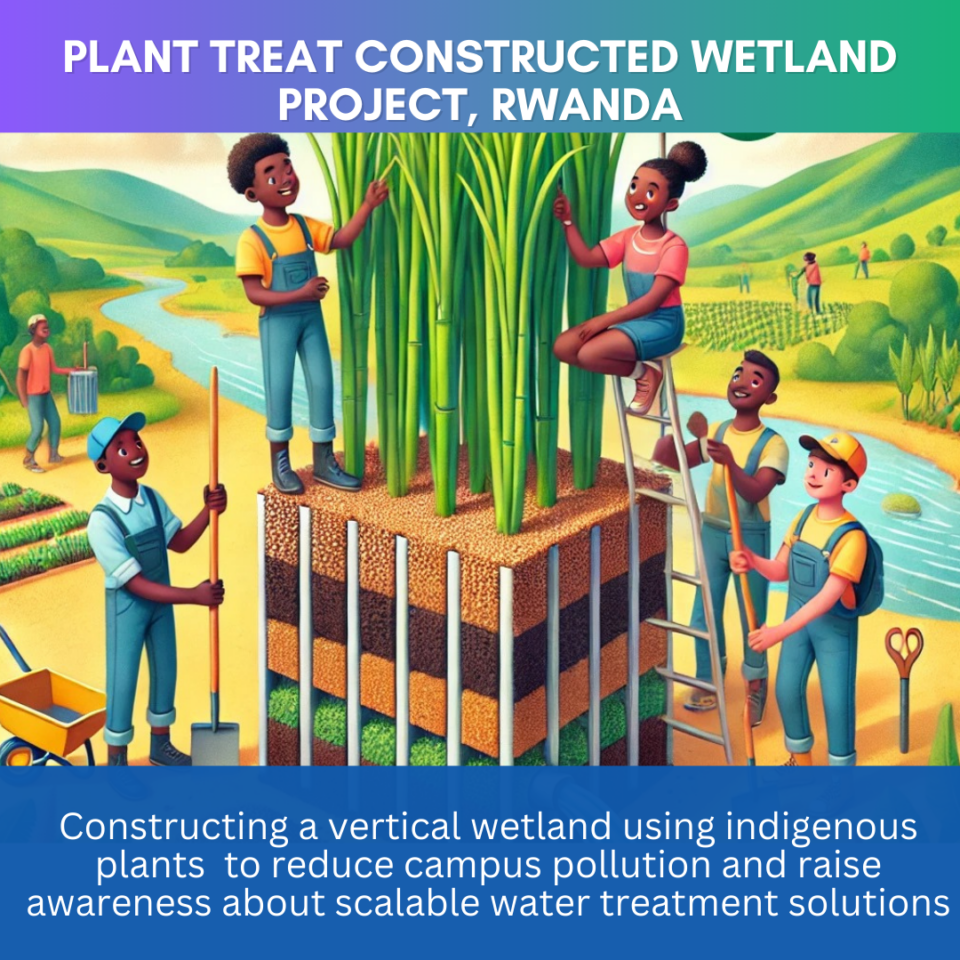
Targeting greywater treatment, this team is constructing a vertical wetland using indigenous plants such as the Mauritian reed (Phragmites Mauritius). Designed to reduce campus pollution and raise awareness about scalable water treatment solutions, this project supports both SDG 6 (Clean Water and Sanitation) and SDG 13 (Climate Action), with a broader vision to inspire sustainable water practices in Kigali and beyond.
Team: Musangwa Innocent, Marie Claudine Umutoniwase, Ineza Gatete Arnaud , Kaze Guylain, Irakoze Pacific, Nisingizwe Pacific
WASH Players, India
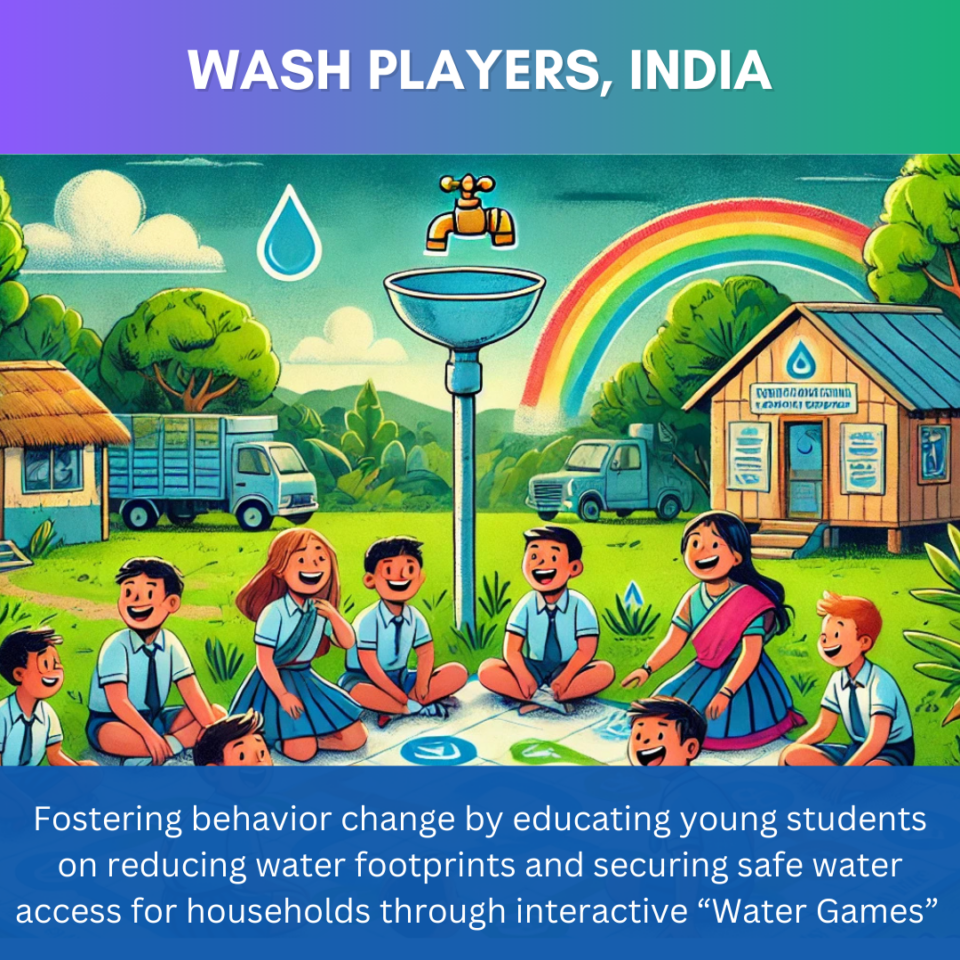
Focused on climate change adaptation, the WASH Players project promotes climate-resilient lifestyles and water conservation awareness through interactive “Water Games.” Initially implemented in five rural schools in Lucknow, Uttar Pradesh, these activities aim to foster behavior change by educating young students on reducing water footprints and securing safe water access for households.
Team: Anubhav Kumar Bhatnagar
Would you like to be a mentor for one of the above projects? Please contact